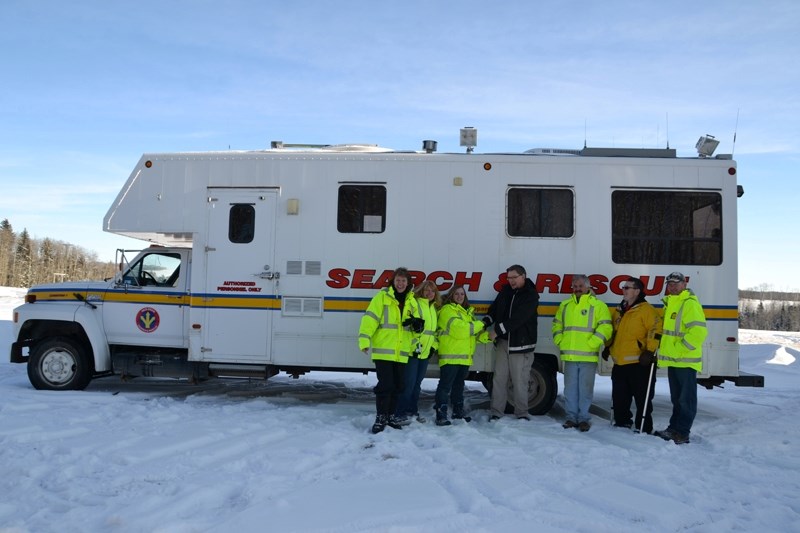Didsbury Search and Rescue (DSAR) has taken possession of a new command vehicle, replacing a unit that had “reached the end of its road,” according to Lorna Oltrop, director of training for DSAR.“The one we had was a converted school bus that had served the team for many years,” Oltrop said. “However, it was old and needed more maintenance than was financially prudent.”The new unit was donated by Alberta Emergency Management Agency and Red Deer Search and Rescue and contains several workstations, including radio and mapping sites.The vehicle is in the process of being outfitted and should be ready for service by March.“The command centre will be equipped with computers, communications, mapping programs and the other supplies and materials necessary for emergency response,” Oltrop said. “The unit has a built-in generator for power in remote locations, a satellite dish for communications, heat and air conditioning, external lighting for night operations and plenty of storage room for equipment and supplies.”The command unit is usually run by a search manager and his or her team, including the RCMP.“It'll be used as a hub for searches while assisting the police,” Oltrop said. “It can be used to assist other teams with their searches, as well.”Typically, a search and rescue command unit is driven to a staging area and used to organize and conduct a search and rescue mission. “This includes communications with police and other emergency agencies, with teams in the field,” Oltrop said. “It's also used to set up the logistics of the mission, including computers, area maps, search parameters, as well as coordinating multiple SAR teams.”Over the years, DSAR has conducted “many” lost person searches, looking for children, despondent persons, overdue hunters and hikers. “DSAR has responded to natural and other disasters such as the Pine Lake tornado, as well as a train derailment where cars were leaking anhydrous ammonia,” she said. “We've assisted in evacuations and patrolled the West Country during extreme fire hazard.”The DSAR has also assisted the Didsbury and other RCMP detachments by searching for evidence such as weapons and clues in criminal or other investigations.Sgt. Jeff Jacobson, detachment commander of the Didsbury RCMP, described the new vehicle as a “positive for search and rescue.”“The local search and rescue team is a highly trained unit and they're doing a good job,” Jacobson said. “Typically, if there were a missing person, we'd be responsible for the search and rescue. We have trained search managers in the RCMP and locally, we have one member who is trained in that capacity.”He added that in the detachment area, there aren't a lot of calls. “We've had two calls since the spring of 2009,” he said.Every year during the May long weekend, the Didsbury RCMP set up a base camp in the Burnt Timber area for about four days.“We've got a first aid station set up and we provide assistance to RCMP, Fish and Wildlife, Sustainable Resources, as well as fire and ambulance,” Oltrop said. “Last year, we treated dislocated shoulders, fractures and a suicide attempt.“We even treated a bleeding dog.”DSAR is a non-profit organization that was started in 1997 by Don Oltrop, a retired RCMP officer and the current president of the DSAR. The organization is made up of trained volunteers who last year donated more than 3,000 hours of their time to help their communities.“Our members are called out at any hour of the day or night, regardless of the weather,” Lorna Oltrop said. “None of this is paid and not all our callouts have happy endings.”Each member must complete a search and rescue basic course and must be trained in first aid and CPR.“There are many other courses available to our members, including quad/ATV, team leader, Forward-Looking Infrared and air spotter, evidence handling, bone identification, rope rescue, GPS, map and compass, wilderness first aid and tracking,” Oltrop said. “Plus, we regularly conduct exercises to improve and keep our skills current.”Much of their work must remain unknown to the public. “Details of our operations can jeopardize police investigations or, in the case of missing persons, cause distress to families,” she said. “Because of this confidentiality, much of what Search and Rescue accomplishes is not publicly known.”The new command vehicle will be housed at the Search and Rescue station in Water Valley.



